Facebook discussion from Monday, 4.11:
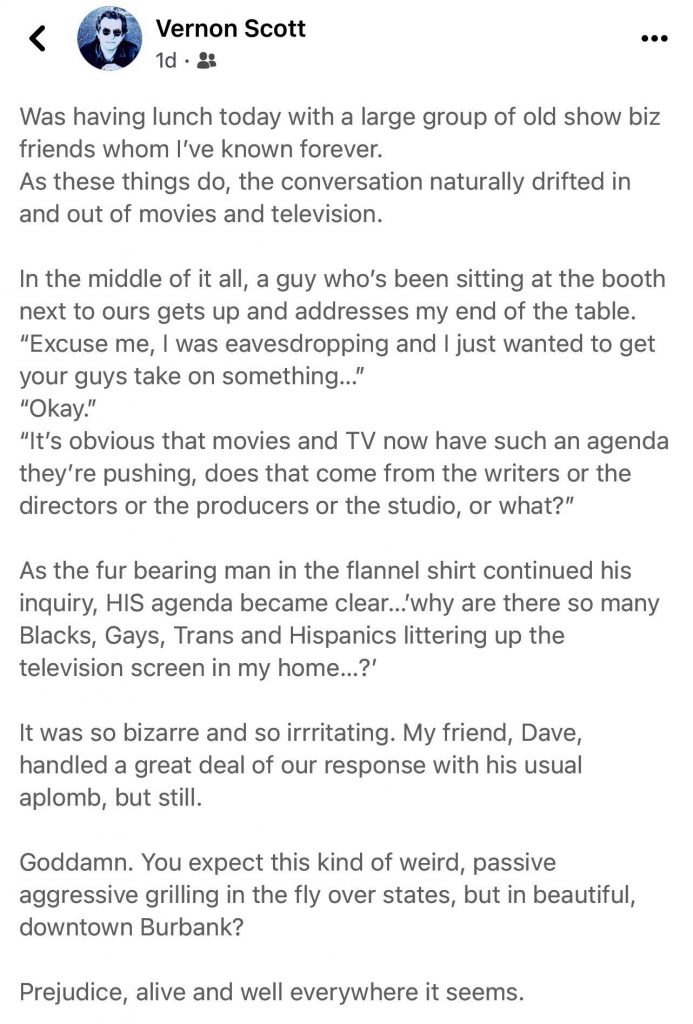

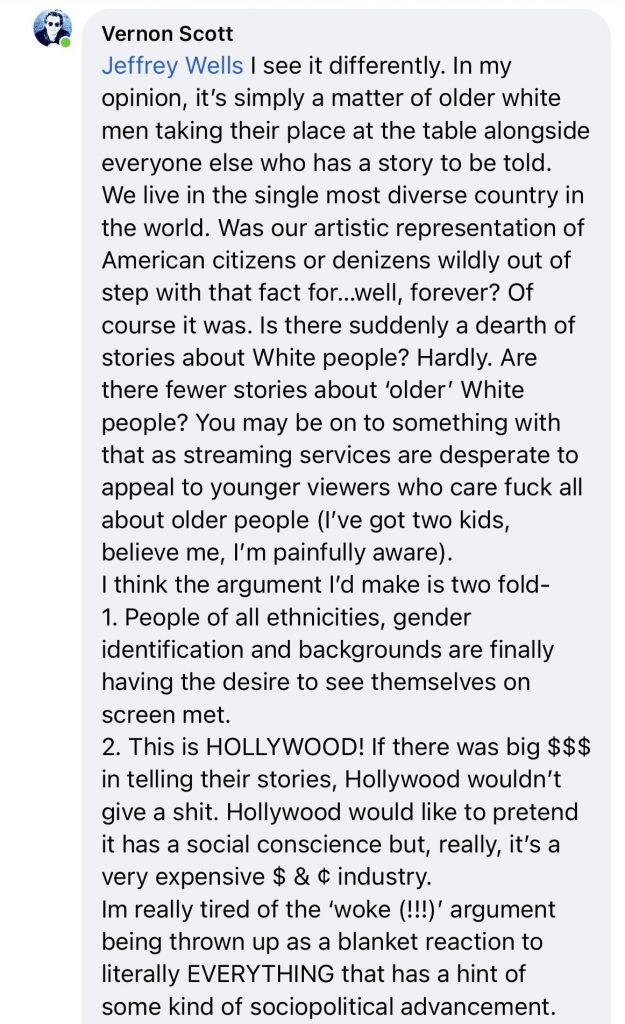
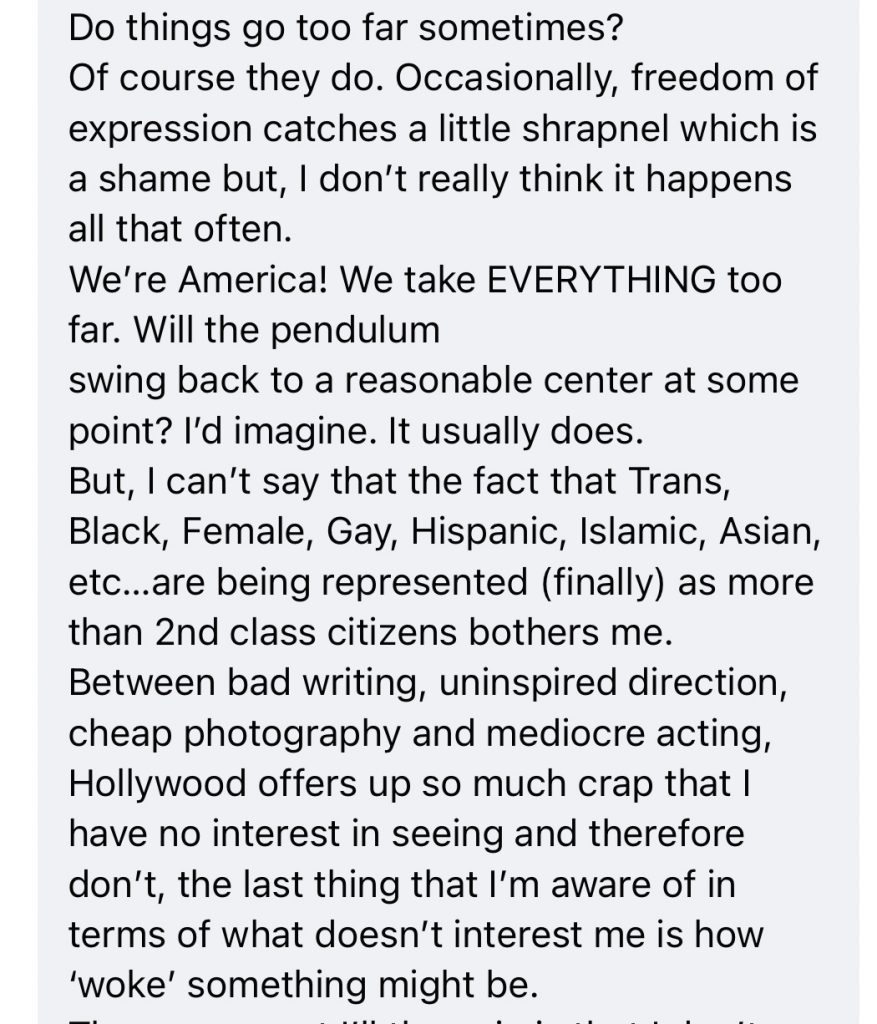
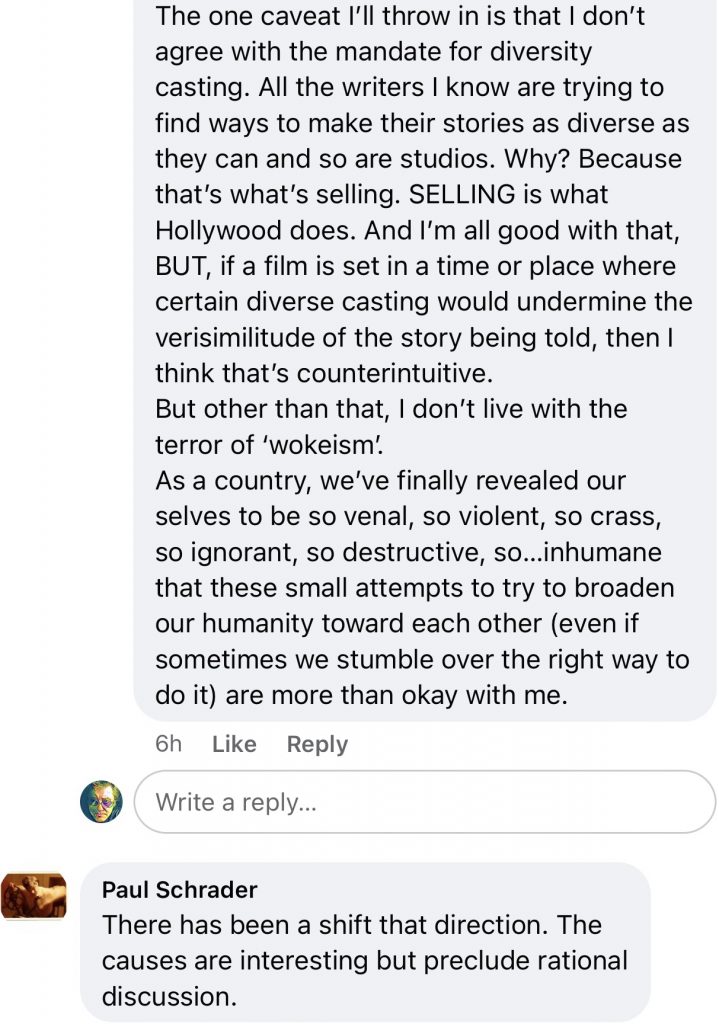
Facebook discussion from Monday, 4.11:





In Senior Year (Netflix, 5.13), Rebel Wilson‘s “Stephanie Conway” awakes from a 20-year coma at age 38 or thereabouts, and decides to return to high school in 2022 to finish her senior year.
You can tell by the lame-ass humor in the trailer (jokes about Madonna vs. Lady Gaga, the relentless Fast and Furious franchise) that the senior creatives were terrified of doing the obvious.
The obvious would have been to create a fish-out-of-water comedy about a woman from 2002 suddenly grappling with woke Stalinism.
Wilson and her colleagues were too scared, in other words, to focus on the horror of Twitter, totalitarian safe spaces, the revolutionary consciousness overhaul brought about by #MeToo, the prohibition of certain terms, the dismissal of nearly all over-40 white males, Variety apologizing to Carey Mulligan for a single sentence in Dennis Harvey‘s review of Promising Young Woman, CRT and equity in schools, trans activists calling the shots (and therefore the triumph of Lia Thomas and the grooming of three-year-olds so they’ll understand the particulars of all the various genders), all people of color regarded as hothouse flowers and given sainthood status, celebrating obesity in underwear ads, etc.
There was a 1989 Cheech and Chong comedy called Rude Awakening — late ’60s hippies hiding in Central America and suddenly returning to the U.S. in the late ’80s and confronted with yuppie culture. Similar.
HE salutes Wilson, by the way, for dropping 77 pounds between ’20 and ’21. She’s still “ample” but within reasonable proportions.
A year or two from now a large, rectangular, 12-storied, glass-walled building (business + residential) will arise on the south side of the Sunset Strip — 8850 Sunset Blvd.. Right across from Panini, an Italian pizza take-out place that I’ve been going to for decades, and bordered by Larabee on the eastern side and San Vicente Blvd. on the west.
No, they’re not destroying the Viper Room…well, they are but they’re re-launching or reconstituting it as a kind of corporate lounge rock-music club, or so it seems. The VR’s glowing shamrock green color (a trademark thing) will frame the entrance.
This morning a couple of older guys with a notepad and printed reading materials dropped by to solicit opinions about the forthcoming structure. I shared a few thoughts, using the words “soul-less” and “rancid” and “corporate-feeling”, etc.

After they left I posted the following on the 8850 website:
“The proposed (and almost certainly forthcoming) 8850 Sunset Blvd. structure will be, to go by your illustrations, another moderately ugly and soul-less office building that will (what else?) degrade the aesthetic atmosphere of the Strip. All of that glass looks so synthetic, so humdrum, so similar to tens of thousands of other office + residential buildings all over the world.
“Imagine if, say, Frank Gehry had been hired to design it. Or a disciple of Gehry’s. I have no ideas myself, but a less conventional Gehry-ish design would probably feel a bit more fitting, given the uptown vibe and all.
“It’s L.A. buildings like these that make visiting the historical sections of London, Paris, Rome, Florence and Prague such transporting experiences. Over there they respect history and classic architecture and keeping in touch with the past. Then again this part of the Strip hasn’t been anything to architecturally shout about for decades.
“The upside is that the building will offer affordable housing to a certain number of low-income citizens (less than $40K or $45K annually), and that’s a good thing. Plus they’re going to include a space for the Viper Room, which unfortunately will lose the coal-black exterior and a ton of other atmospheric touches, but at least will still ‘exist’, so to speak.”
Follow-up: If I were calling the shots I’d insert a kind of Hollywood Walk of Fame marble sidewalk square that commemorates River Pheonix, who died in front of the Viper Room on 10.31.93.
For the usual expedient reasons the people behind this project are pretending to be interested in what average WeHo residents think about it. I don’t know why I just wrote this. The fix is in. What’s next, the destruction of Book Soup?

Variety‘s Clayton Davis has never been to Europe much less to the Cannes Film Festival, but that’s about to change next month. Congrats and safe travels.
HE to Davis: Your tickets are already purchased, you’ve said, but I’m hoping that you’ve arranged to schedule a brief stop-over in Paris (which you’ve also never visited) on the way back. After every Cannes Film Festival I’ve attended (my first was in ’92) I’ve always downshifted in Paris, Rome, Prague, Berlin, Barcelona, Lauterbrunnen, London, Ireland, etc. It would be almost sinful, I feel, to ignore this post-Cannes opportunity. But that’s me.
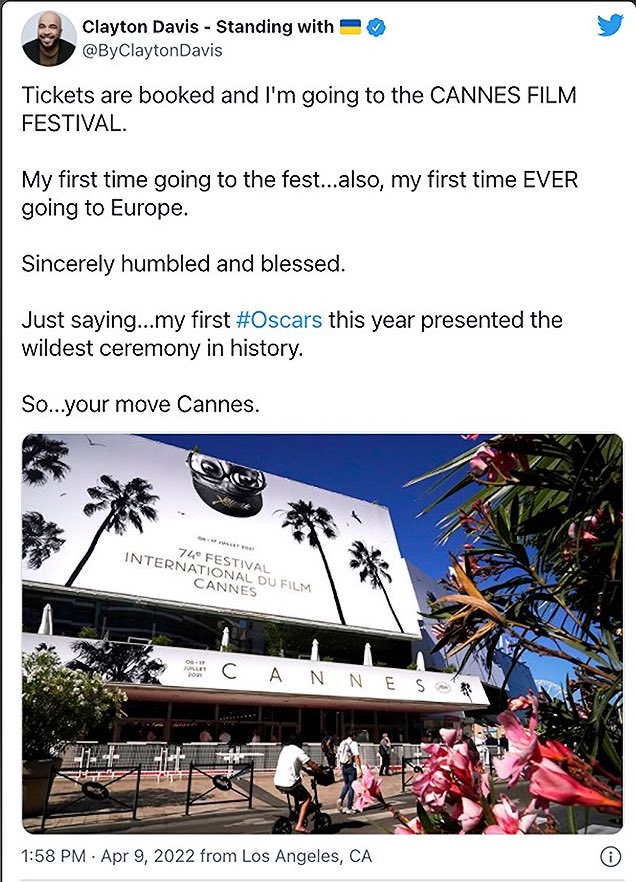
As previously noted I am tingling with excitement about watching Everything Everywhere All At Once. It’s obviously and totally my kind of movie. But before the viewing happens, I have to at least salute the brilliant one-sheet.

Sam Elliott has apparently been told by his agent to walk back his Power of the Dog diss for political reasons. I don’t know for a fact that industry Robespierres have decided that Elliott is anti-progressive or sexist or something in that vein, but many probably have. And as a result they might’ve diminished Elliott’s appeal as an actor-for-hire. Maybe.
Apologizing for a previously expressed opinion is Elliott’s right, of course, but we all know what the shot is here.
Deep down Elliott is almost certainly saying “c’mon, man…I can’t express an opinion that you don’t like because my career will be hurt if I don’t walk it back? And you think…what, that it’s a good thing that incorrect opinions, as you see them, are being squelched in urban blue environments by wokesters? Okay, guys — I get it. You guys are HUAC-style wolves dressed in humanist-diverse clothing, but I’m nonetheless ‘sorry’ for my transgression. And in the meantime, perhaps some of you might to watch Ken Russell‘s The Devils.”
I’m posting this out of respect for Elliott, of course, and partly from my own experience last year.
Sam Elliott apologizes for his controversial comments he previously made about ‘The Power of the Dog’ #DeadlineContenders pic.twitter.com/XZ86wCAXmL
— Deadline Hollywood (@DEADLINE) April 10, 2022
Ask me for a Kevin Bacon career highlight, and without hesitation my first answer will always be Tremors (’90). “Valentine McKee”, Bacon’s lively, none-too-bright yokel in cowboy boots and a jean jacket, is his most fully-rounded, emotionally-winning character ever. I re-watched Tremors six or seven years ago and loved it all over again.
Bacon and Fred Ward were a great shitkicker duo in that Ron Underwood film. Tremors was called a failure because it only made $16.7 million after costing $10 million to produce, but it wasn’t a wipe-out. And it did catch on at Blockbuster, and it gradually spawned a few Tremors sequels. I saw the first one (Tremors 2: Aftershocks) and quickly got off the boat. The others were probably just as bad.
Jett, Dylan and I watched the original Tremors over and over when it hit laser disc in ’96. (They called it “Sand Monsters”.) Not long after I introduced Jett to Kevin at a post-screening reception. A proud moment.
I had first met Bacon in early ’82 (40 years ago!) when I was assigned to interview him for Us magazine. The topic du jour was his breakout performance as “Fenwick,” the nihilistic kid who knows all the game-show answers, in Barry Levinson‘s Diner. Every film journalist loved that little movie, and Joe Popcorn mostly went “meh” — it only managed $14 million domestic.
All to say that I found the above Tremors interview fascinating. Bacon was in a shaky position at the time, he says. A career slump, running out of money. But he knew he could have fun with the character.
Right after Tremors on my Bacon scale is Diner (’82). I would never, ever mention Footloose, which I instantly hated. I would then mention Bacon’s wise-ass gay prostitute in JFK, his Marine prosecutor in A Few Good Men and astronaut Jack Swigert in Apollo 13. I also liked him in Paul Verhoeven‘s The Hollow Man (’00), HBO’s Taking Chance (’09) and Amazon’s I Love Dick.
In April ‘62 JFK derided steel executives for raising steel prices by $6 a ton, and thereby showing “utter contempt” for the interests of average Americans. Right now big oil is showing the same kind of disregard by using the Ukraine War as a rationale for sending gas prices through the roof. Lefties are calling them on this, but has President Biden said anything? This is what the bully pulpit is for.

And by the way, on his recent trip to Europe why didn’t Biden visit Kyiv and do a walk-around with Zelenskyy, like British PM Boris Johnson has just done?
Various dino breeds leaving footprints in the snow is, I’ll admit, a striking visual concept; ditto the extra-large Gigantosaurus. But the most attractive element (for me) is the sight of dinosaurs sprinting around on the island of Malta, where some of this was filmed.
It’s my feeling that the return of the Sam Neill-Laura Dern-Jeff Goldblum trio for the first time since ‘93…I’m afraid this only reiterates what a shameless paycheck project this basically is.
Colin Trevorrow directed this 6.10.22 release.
Is it really true that the aspect ratio is 2:1 — Vittorio Storaro’s preferred a.r.? The IMDB page says this.
Question: How does a TRex-like dino manage to swim with just those tiny little arms to paddle with?